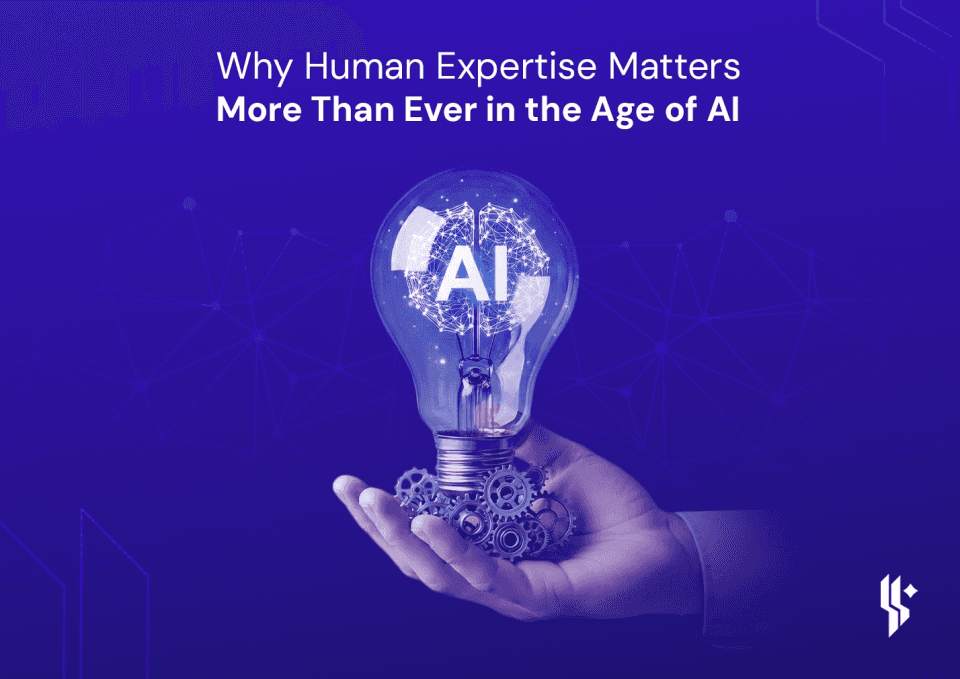Wynt Blog
Find an Article
Wynt Blog
Find an Article
Wynt Blog

Jul 23, 2025
Can AI Chatbots Replace Human Therapists? Stanford Study Reveals Critical Risks
The Growing Debate: AI Chatbots in Mental Health Care
With the rise of large language models (LLMs), AI-powered therapy chatbots are gaining attention as potential tools to make mental health support more accessible.
But while these technologies promise convenience, a recent study from Stanford University warns of significant risks tied to their use.
⸻
Key Findings from the Stanford Study
In the paper titled "Expressing stigma and inappropriate responses prevents LLMs from safely replacing mental health providers," researchers evaluated five popular AI therapy chatbots against human therapist standards.
The study will be presented at the ACM Conference on Fairness, Accountability, and Transparency.
According to Nick Haber, Assistant Professor at Stanford's Graduate School of Education, chatbots are increasingly acting as companions and confidants. However, the research found notable dangers:
1. Stigmatization of Mental Health Conditions
• In experiments where chatbots were presented with mental health scenarios, the bots showed higher levels of stigma towards conditions such as alcohol dependence and schizophrenia compared to depression.
• Newer and larger models displayed similar biases, suggesting the issue is systemic rather than model specific.
2. Inappropriate and Dangerous Responses
In a second experiment, chatbots sometimes failed to handle critical situations appropriately. When presented with therapy transcripts involving suicidal thoughts or delusions, chatbots often failed to redirect or de-escalate dangerous conversations. For instance, when asked seemingly unrelated and risky questions after a distressing statement, some chatbots offered factual answers instead of focusing on the user's mental health.
3. Why Human Therapists Remain Essential
While AI chatbots can assist in administrative tasks like billing, journaling support, or training simulations, the Stanford study underscores that core therapeutic roles demand human expertise. Here’s why:
• Empathy and Judgment: Human therapists provide empathy, nuanced judgment, and moral responsibility, qualities AI cannot fully replicate.
• Ethical Accountability: Mental health care involves sensitive, life-impacting decisions. Relying solely on AI could lead to ethical and legal complications.
• Adaptability: Every patient is unique. Therapists adapt their approach in real time based on subtle cues, something AI struggles with.
⸻
The Future of AI in Therapy: Support, Not Replacement
According to study authors Jared Moore and Nick Haber, AI's role in therapy should be viewed as supportive rather than substitutive. Tasks like automating appointment scheduling, providing general wellness tips, and assisting therapists with insights are within scope. Full replacement, however, remains unlikely and unadvisable.
⸻
Conclusion
Proceed with Caution While AI therapy chatbots offer intriguing possibilities, they are far from ready to replace licensed mental health professionals. Human therapists provide irreplaceable value, especially when handling complex emotional and psychological issues. Businesses and individuals exploring AI for mental health must prioritize ethical considerations and use these tools as enhancements rather than substitutes.
Have More Questions?
Reach out Through
Latest Articles
Stay Updated with Our Latest Insights

Jul 23, 2025
Can AI Chatbots Replace Human Therapists? Stanford Study Reveals Critical Risks
The Growing Debate: AI Chatbots in Mental Health Care
With the rise of large language models (LLMs), AI-powered therapy chatbots are gaining attention as potential tools to make mental health support more accessible.
But while these technologies promise convenience, a recent study from Stanford University warns of significant risks tied to their use.
⸻
Key Findings from the Stanford Study
In the paper titled "Expressing stigma and inappropriate responses prevents LLMs from safely replacing mental health providers," researchers evaluated five popular AI therapy chatbots against human therapist standards.
The study will be presented at the ACM Conference on Fairness, Accountability, and Transparency.
According to Nick Haber, Assistant Professor at Stanford's Graduate School of Education, chatbots are increasingly acting as companions and confidants. However, the research found notable dangers:
1. Stigmatization of Mental Health Conditions
• In experiments where chatbots were presented with mental health scenarios, the bots showed higher levels of stigma towards conditions such as alcohol dependence and schizophrenia compared to depression.
• Newer and larger models displayed similar biases, suggesting the issue is systemic rather than model specific.
2. Inappropriate and Dangerous Responses
In a second experiment, chatbots sometimes failed to handle critical situations appropriately. When presented with therapy transcripts involving suicidal thoughts or delusions, chatbots often failed to redirect or de-escalate dangerous conversations. For instance, when asked seemingly unrelated and risky questions after a distressing statement, some chatbots offered factual answers instead of focusing on the user's mental health.
3. Why Human Therapists Remain Essential
While AI chatbots can assist in administrative tasks like billing, journaling support, or training simulations, the Stanford study underscores that core therapeutic roles demand human expertise. Here’s why:
• Empathy and Judgment: Human therapists provide empathy, nuanced judgment, and moral responsibility, qualities AI cannot fully replicate.
• Ethical Accountability: Mental health care involves sensitive, life-impacting decisions. Relying solely on AI could lead to ethical and legal complications.
• Adaptability: Every patient is unique. Therapists adapt their approach in real time based on subtle cues, something AI struggles with.
⸻
The Future of AI in Therapy: Support, Not Replacement
According to study authors Jared Moore and Nick Haber, AI's role in therapy should be viewed as supportive rather than substitutive. Tasks like automating appointment scheduling, providing general wellness tips, and assisting therapists with insights are within scope. Full replacement, however, remains unlikely and unadvisable.
⸻
Conclusion
Proceed with Caution While AI therapy chatbots offer intriguing possibilities, they are far from ready to replace licensed mental health professionals. Human therapists provide irreplaceable value, especially when handling complex emotional and psychological issues. Businesses and individuals exploring AI for mental health must prioritize ethical considerations and use these tools as enhancements rather than substitutes.
Have More Questions?
Reach out Through

Jul 23, 2025
Can AI Chatbots Replace Human Therapists? Stanford Study Reveals Critical Risks
The Growing Debate: AI Chatbots in Mental Health Care
With the rise of large language models (LLMs), AI-powered therapy chatbots are gaining attention as potential tools to make mental health support more accessible.
But while these technologies promise convenience, a recent study from Stanford University warns of significant risks tied to their use.
⸻
Key Findings from the Stanford Study
In the paper titled "Expressing stigma and inappropriate responses prevents LLMs from safely replacing mental health providers," researchers evaluated five popular AI therapy chatbots against human therapist standards.
The study will be presented at the ACM Conference on Fairness, Accountability, and Transparency.
According to Nick Haber, Assistant Professor at Stanford's Graduate School of Education, chatbots are increasingly acting as companions and confidants. However, the research found notable dangers:
1. Stigmatization of Mental Health Conditions
• In experiments where chatbots were presented with mental health scenarios, the bots showed higher levels of stigma towards conditions such as alcohol dependence and schizophrenia compared to depression.
• Newer and larger models displayed similar biases, suggesting the issue is systemic rather than model specific.
2. Inappropriate and Dangerous Responses
In a second experiment, chatbots sometimes failed to handle critical situations appropriately. When presented with therapy transcripts involving suicidal thoughts or delusions, chatbots often failed to redirect or de-escalate dangerous conversations. For instance, when asked seemingly unrelated and risky questions after a distressing statement, some chatbots offered factual answers instead of focusing on the user's mental health.
3. Why Human Therapists Remain Essential
While AI chatbots can assist in administrative tasks like billing, journaling support, or training simulations, the Stanford study underscores that core therapeutic roles demand human expertise. Here’s why:
• Empathy and Judgment: Human therapists provide empathy, nuanced judgment, and moral responsibility, qualities AI cannot fully replicate.
• Ethical Accountability: Mental health care involves sensitive, life-impacting decisions. Relying solely on AI could lead to ethical and legal complications.
• Adaptability: Every patient is unique. Therapists adapt their approach in real time based on subtle cues, something AI struggles with.
⸻
The Future of AI in Therapy: Support, Not Replacement
According to study authors Jared Moore and Nick Haber, AI's role in therapy should be viewed as supportive rather than substitutive. Tasks like automating appointment scheduling, providing general wellness tips, and assisting therapists with insights are within scope. Full replacement, however, remains unlikely and unadvisable.
⸻
Conclusion
Proceed with Caution While AI therapy chatbots offer intriguing possibilities, they are far from ready to replace licensed mental health professionals. Human therapists provide irreplaceable value, especially when handling complex emotional and psychological issues. Businesses and individuals exploring AI for mental health must prioritize ethical considerations and use these tools as enhancements rather than substitutes.
Have More Questions?
Reach out Through





